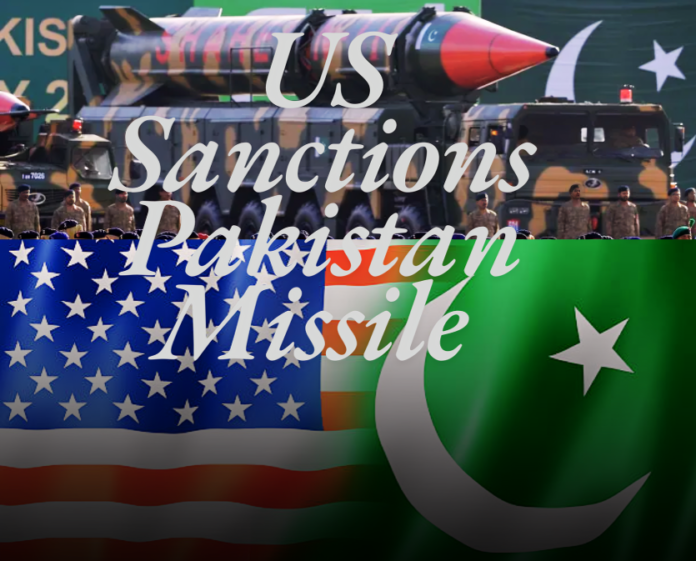The US Sanctions Pakistan Missile Technology following growing concerns regarding Pakistan’s long-range missile capabilities. The United States imposed sanctions on four entities linked to Pakistan’s ballistic missile programme.
These sanctions aim to prevent the proliferation of weapons of mass destruction and their associated delivery systems, as the US government remains wary of Pakistan’s missile development activities.
Entities Affected by US Sanctions
The latest round of US Sanctions Pakistan Missile Technology targets four entities that have allegedly contributed to Pakistan’s missile programme. These include the National Development Complex, which is responsible for overseeing Pakistan’s ballistic missile programme, and three companies—Affiliates International, Akhtar and Sons Private Limited, and Rockside Enterprise.
These companies have reportedly supplied missile-related equipment and materials to Pakistan, assisting in the country’s missile development efforts.
Legal Basis for US Sanctions on Pakistan Missile Technology
The United States has imposed sanctions on entities allegedly involved in activities that threaten global security. These measures are grounded in Executive Order (EO) 13382, which serves as a critical tool in preventing the proliferation of weapons of mass destruction (WMD) and their delivery systems.
Key Features of Executive Order (EO) 13382
1. Purpose:
- Targets individuals and entities linked to the development or delivery of WMDs.
- Aims to disrupt the global supply chain supporting such activities.
2. Scope:
- Empowers the U.S. government to freeze assets of individuals or entities involved.
- Blocks U.S.-based transactions or collaborations with listed individuals or organizations.
3. Focus Areas:
- Preventing the acquisition of materials and technology for long-range missile development.
- Halting financial flows that contribute to WMD proliferation.
Rationale Behind the Sanctions
The U.S. State Department emphasized its commitment to safeguarding international security. The primary objectives include:
Blocking Technology Transfers: Ensuring that critical technological resources do not fall into the hands of entities seeking to develop advanced missile systems.
Addressing Global Threats: Responding to activities by countries, including Pakistan, that could destabilize regional and international security through long-range missile programs.
Impact of US Sanctions
1. On Targeted Entities:
- Freezing of financial assets held in the U.S.
- Loss of access to the international financial system and technology markets.
2. On International Security:
- Sends a strong message to nations and organizations engaged in WMD proliferation.
- Reinforces the global commitment to countering the spread of dangerous weaponry.
The sanctions under EO 13382 reflect the U.S. government’s proactive approach to combating threats posed by WMD proliferation. By blocking the flow of resources and technology to programs involving long-range missiles, these measures aim to uphold international security and prevent potential conflicts.
Previous Sanctions and Continued Actions
These sanctions follow a series of earlier actions taken by the US against entities that have aided Pakistan’s missile programme. In September 2023, the US targeted a Chinese research institute and several companies for their involvement in supporting Pakistan’s missile development.
Also Read: Pakistan Successfully Tests Shaheen-II Missile
Further sanctions were imposed in October 2023 on China-based firms supplying Pakistan with missile-related items. The United States has clearly stated that it will continue to take action against any entities or countries that contribute to the advancement of missile technology in Pakistan.
US Commitment to Global Security
The US Sanctions Pakistan Missile Technology are part of the United States’ broader strategy to prevent the spread of weapons of mass destruction. By targeting these entities, the US hopes to send a strong message that it will not tolerate the proliferation of technologies that could destabilize global security.
The sanctions reflect ongoing concerns about Pakistan’s missile development and its potential implications for regional and international stability.


